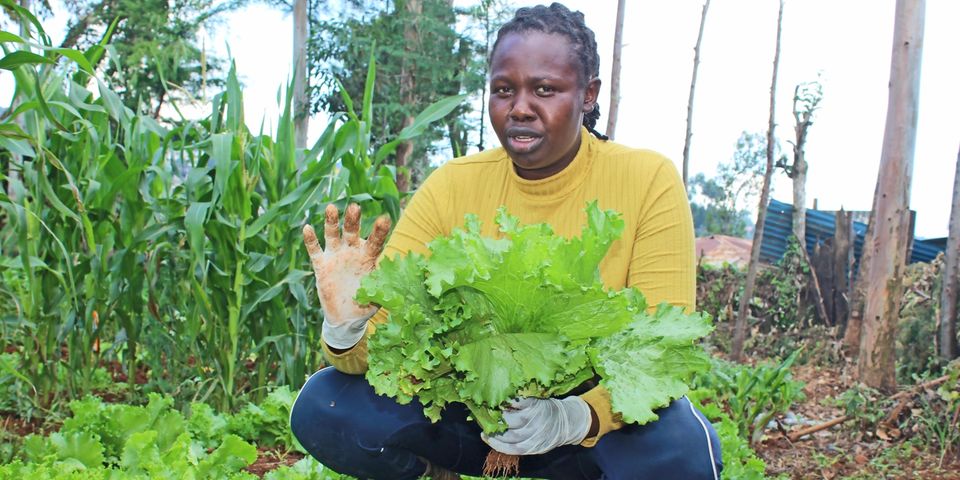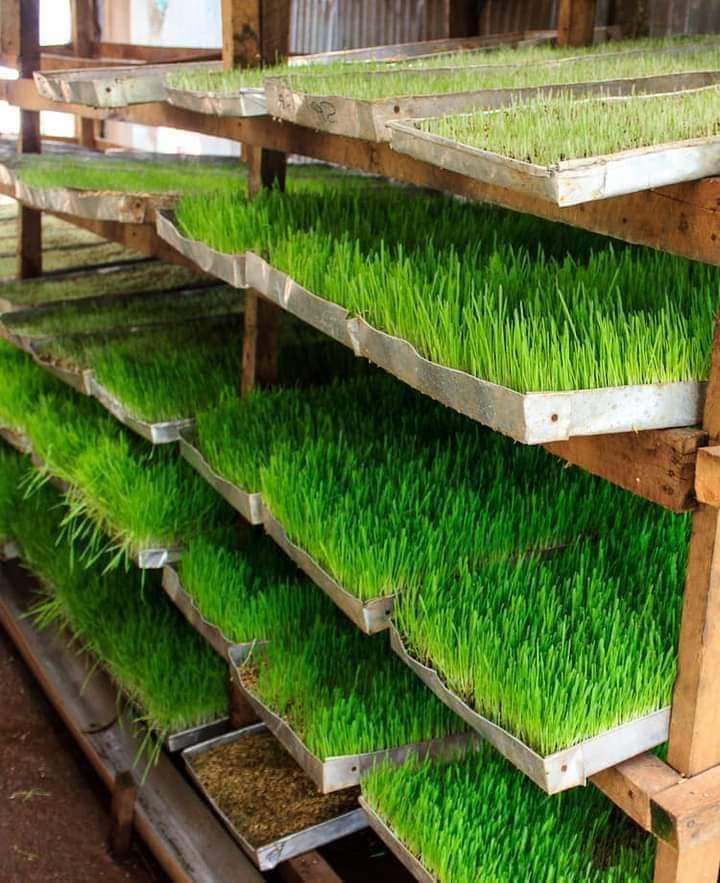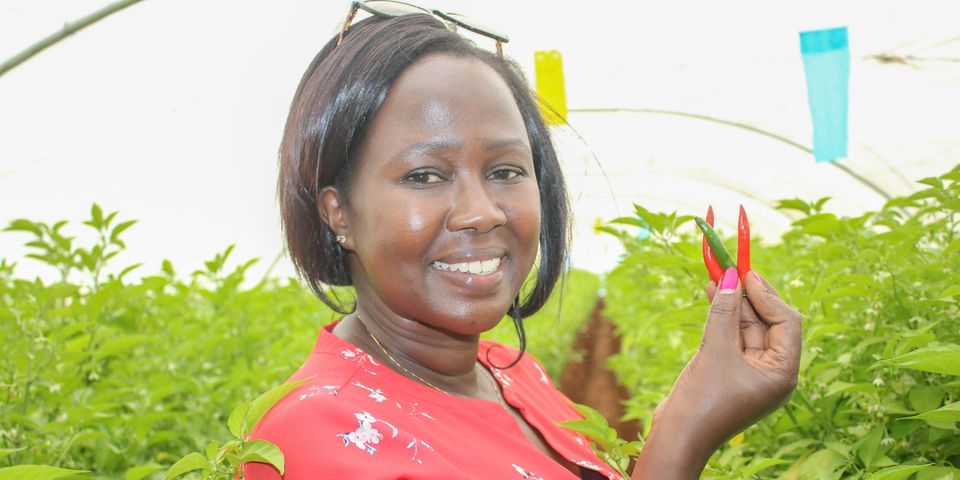Maureen Chesumei’s eighth-acre farm in Kuriondonin village, some 3km from Kabarnet town in Baringo County, is dotted with 20 different vegetables that include broccoli, lettuce, thyme, garlic, celery, parsley, cauliflower, courgette, beetroot and pak choi, all which she grows organically.
She started the venture in January after having graduated from Moi University with a degree in media science.
“Many people tried to discourage me that farming is not for university graduates but I found it rewarding. My initial plan was start a vegetable and fruits shop but I could not raise the capital.”
She settled on the vegetable farm that combines organic and permaculture gardening concepts that include use of recycling bottles to grow in the crops.
“I chose organic farming because it ensures soil conservation and fertility. Organic produce is also less harmful to consumers and the method is relatively cheaper since one does not have to buy expensive chemicals.”
She uses organic manure from sheep, chicken and cows, which she sources from a neighbour, and also intercrops the crops with others like marigold that attract bees and help pests at bay.
“For pesticides, I mix waste from sheep and chicken with ash and apply on the crops. I also use crop rotation to curb soil-borne diseases. Once I harvest, for instance, broccoli on one part of the land, I grow a different crop at the spot,” she recounts.
She uses the recycled plastic bottles as her seed bed or nursery. “This helps me prevent the soils from being washed away. Second, it also helps me to utilise space and minimises pest infestation since there is their controlled movement,” she says.
Uses online platforms
Maureen uses online platforms like Facebook and WhatsApp to sell her produce and also referrals help her get customers.

“Once someone pays, I deliver to them using boda boda guys at their place of work or residence in Kabarnet, Kasoiyo and Kabasis townships. In a good day, I earn at least Sh2,000 depending on the orders. A kilo of cucumber or courgettes goes for Sh60 while beetroot at Sh80.”
Some of the challenges she grapples with are pest and disease attack as well as water scarcity.
“I do routine scouting, hand-pick and squash unwanted insects. Removing the weeds regularly also helps to do away with destructive pests. I also do mulching to reduce weeds. Besides that, crop rotation helps to control soil-borne diseases and improve soil fertility,” says Maureen, who farms on part of their family land.
Her younger sister, who is studying agriculture at the university helps her run the farm. “But I also seek advice from agricultural practitioners.”
Ruth Njoroge, a soil scientist at University of Eldoret, says under this mode of farming, there is reduced application of chemical inputs in the farming system thus reducing environmental pollution.
“It also adds organic matter in the soil improving the quality. Generally, organic products are of high value and have no chemical residues.”
She advises that one should conduct soil testing to identify the nutritional status of the soil before applying fertiliser.




